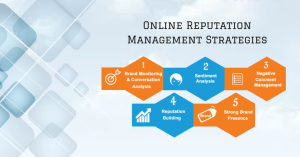If you need to look up something quickly, chances are you’ll head straight to Wikipedia – the free encyclopedia search page that’s been around for years. What type of website is Wikipedia? It’s the go-to website for finding information on just about anything under the sun, and it’s pretty impressive how much content there is on there. But with so much content, how accurate is Wikipedia? Well, the truth is, it’s pretty decent! While anyone can edit the Wikipedia page content, there are also dedicated teams of editors who ensure the accuracy of the information on the website. But although Wikipedia is a good source to use for general information, some topics might not be on it and it’s always a good idea to verify the information you find there with other sources.
In this article, we have listed down the 10 most popular alternatives to Wikipedia. Continue reading to find out more about them!
Is Wikipedia Still The Best Online Encyclopedia?
While Wikipedia is a popular online encyclopedia and a go-to source for many, it’s not necessarily the best option for everyone. In recent years, alternative sites have emerged that provide high-quality information and may be more reliable than Wikipedia.
One such example is Britannica, which has a team of experts who carefully vet the content on the website. Another alternative is the Stanford Encyclopedia of Philosophy, which is created and maintained by experts in the field. Additionally, Google Scholar and Microsoft Academic are great resources for scholarly research. While Wikipedia can be a good starting point, it’s always a good idea to check other sources and consider the credibility of the information presented. Consulting with professional Wikipedia writers can also ensure accuracy and reliability when utilizing Wikipedia as a source. Ultimately, the best online encyclopedia depends on the specific needs of the user and the type of information they’re looking for
Also Read: How to Create a Wikipedia Page: Easy 12 Steps Guide for Your Wiki Page Creation Journey
Top 10 Wikipedia Alternatives (with Pros & Cons)
In this section, we will explore the top 10 Wikipedia alternatives and discuss their pros and cons.
1: Encyclopedia Britannica
One of the oldest and most reputable encyclopedias, now available online. It is known for its high-quality, in-depth articles written by experts in various fields.
Pros & Cons of Encyclopedia Britannica
Pros of Encyclopedia Britannica
- Articles written by experts in their fields
- Reliable and accurate information
- Credible reputation
- High editorial standards
- Thoroughly researched content
- Covers a wide range of topics
- Available in both print and digital formats
- Provides citations for sources
Cons of Encyclopedia Britannica
- Expensive subscription required for full access
- May not be as up-to-date as online sources
- Limited interactivity and multimedia features
- Lacks the breadth of user-generated content found on platforms like Wikipedia
- Less accessible to a wider audience due to the subscription model.
2: World Book Online
An online encyclopedia that provides reliable and accurate information on a wide range of topics. It is written and reviewed by experts and offers multimedia content.
Pros & Cons of World Book Online
Pros of World Book Online
- Provides reliable and accurate information
- Written and reviewed by experts in their fields
- User-friendly interface
- Contains multimedia content like images, videos, and audio
- Covers a wide range of topics
- Offers citation tools for sources
- Can be accessed from anywhere with an internet connection
Cons of World Book Online
- Requires a subscription for full access
- May not be as up-to-date as online sources
- Limited interactivity and multimedia features compared to some online resources
- Lacks the breadth of user-generated content found on platforms like Wikipedia
- Less accessible to a wider audience due to the subscription model
3: Scholarpedia
A peer-reviewed online encyclopedia that aims to provide accurate and up-to-date information on scientific topics. It is written by experts and reviewed by other experts in the field.
Pros & Cons of Scholarpedia
Pros of Scholarpedia
- Provides in-depth and peer-reviewed articles on various scientific topics.
- Content is written and reviewed by experts in their fields.
- Offers high-quality and reliable information.
- Provides references and citations for all articles.
- Offers a platform for scholars to contribute and edit content.
- Articles are regularly updated and reviewed to ensure accuracy.
- Offers free access to all content.
Cons of Scholarpedia
- The scope of content is limited to scientific topics only.
- May not be as comprehensive as other scientific reference sources like PubMed or Web of Science.
- Articles may be too technical and difficult for non-experts to understand.
- The website’s design may not be as user-friendly or visually appealing as other online reference sources.
- Some articles may be incomplete or not yet available, as the website relies on voluntary contributions from scholars.
4: Fact Monster
Pros & Cons of Fact Monster
Pros of Fact Monster
A website for children that provides educational resources, including an online encyclopedia, homework help, and games. It covers various topics, including history, science, and geography.
- Provides access to a wide range of educational resources for students of all ages.
- Offers a variety of reference tools, including dictionaries, thesauruses, and atlases.
- Includes a homework center that provides resources and tools for students.
- Offers interactive quizzes and games to make learning more engaging.
- Provides access to current news and features updated daily.
- Offers a free version with limited content.
Cons of Fact Monster
- The information provided may not be as in-depth or reliable as other reference sources.
- May not be as comprehensive as other online reference sources like Encyclopedia Britannica or World Book Online.
- Some features, such as full access to certain content or tools, require a paid subscription.
- The website’s design may not be as user-friendly or visually appealing as other online reference sources.
- The scope of content is limited to educational topics only and may not cover all subjects or topics.
5: Infoplease
An online encyclopedia that provides reliable and authoritative information on a wide range of subjects, including history, science, and current events. It also includes interactive tools such as maps and quizzes.
Pros & Cons of Infoplease
Pros of Infoplease
- Offers a wide range of information on various topics, including history, geography, and current events.
- Provides access to various reference tools like dictionaries, atlases, and encyclopedias.
- Includes a homework center that provides resources and tools for students.
- Offers interactive quizzes and games to make learning more engaging.
- Provides access to current news and features updated daily.
- Offers a free version with limited content.
Cons of Infoplease
- The information provided may not be as in-depth or reliable as other reference sources.
- May not be as comprehensive as other online reference sources like Encyclopedia Britannica or World Book Online.
- Some features, such as full access to certain content or tools, require a paid subscription.
- The website’s design may not be as user-friendly or visually appealing as other online reference sources.
6: Citizendium
A collaborative online encyclopedia that aims to combine the accuracy of traditional encyclopedias with the openness of Wikipedia. It requires contributors to use their real names and credentials to ensure the accuracy of the articles.
Pros & Cons of Citizendium
Pros of Citizendium
- Provides in-depth and peer-reviewed articles on various topics.
- Content is written and reviewed by experts in their fields.
- Offers high-quality and reliable information.
- Provides references and citations for all articles.
- Offers a platform for scholars to contribute and edit content.
- Uses real names for contributors, providing transparency and accountability.
- Offers a free version with no advertising.
Cons of Citizendium
- The website’s design may not be as user-friendly or visually appealing as other online reference sources.
- The scope of content is limited compared to other online encyclopedias like Wikipedia.
- The website’s content is not as comprehensive as other online reference sources.
- The website has a smaller user base, resulting in fewer contributions and updates to content.
- The website’s content may not be as up-to-date as other online reference sources.
7: Deletionpedia
A wiki that archives articles that have been deleted from Wikipedia. It is not a reliable source of information as the articles may have been deleted due to numerous reasons.
Pros & Cons of Deletionpedia
Pros of Deletionpedia
- The preservation of historical information that may have been removed from Wikipedia for various reasons.
Cons of Deletionpedia
- The content is largely made up of articles that have been deleted from Wikipedia, which may not be reliable or accurate.
- The website does not have any editorial oversight, so the quality and accuracy of information cannot be guaranteed.
- Some of the content may be considered controversial, offensive, or inappropriate, as it was deleted from Wikipedia for violating the website’s content policies.
- The website may be difficult to navigate and may not be user-friendly.
- There may be legal concerns around the preservation and publication of deleted content.
8: Encyclopedia.com
An online encyclopedia that provides articles from various sources, including reputable reference books and magazines. It covers a wide range of topics from arts and literature to science and technology.
Pros & Cons of Encyclopedia.com
Pros of Encyclopedia.com
- It provides access to a wide range of information on various topics, including history, science, and technology.
- Offers a large collection of reference materials like encyclopedias, dictionaries, and thesauri.
- Provides free access to all content without the need for a subscription.
- Offers a user-friendly interface that is easy to navigate.
- Provides citations and references for all articles.
- Includes multimedia content like images, videos, and audio.
Cons of Encyclopedia.com
- The information provided may not be as in-depth or reliable as other reference sources.
- May not be as comprehensive as other online reference sources like Encyclopedia Britannica or World Book Online.
- Articles may be written by a range of authors with varying levels of expertise.
- Some content may not be as up-to-date as other online reference sources.
- The website may contain advertisements that can be distracting to users.
9: Uncyclopedia
A satirical website that parodies the style and format of Wikipedia. It provides humorous articles on various topics and encourages user contributions.
Request a Free Consultation
Pros & Cons of Uncyclopedia
Pros of Uncyclopedia
- Provides humorous and satirical content on various topics.
- Offers a unique perspective on popular culture, current events, and historical events.
- Offers a platform for writers to contribute and edit content.
- Provides a creative outlet for writers and comedians.
- Can be an entertaining and humorous way to learn about certain topics.
- Offers free access to all content.
Cons of Uncyclopedia
- The information provided may not be accurate or reliable, as the website’s content is primarily intended for comedic purposes.
- The website’s content can be offensive or inappropriate for some audiences.
- The website’s design may not be as user-friendly or visually appealing as other online reference sources.
- May not be a suitable source for academic or serious research purposes.
- Some articles may be poorly written or contain excessive profanity or humor.
10: Conservapedia
A website that provides a conservative perspective on current events and topics. It offers articles on various topics, including history, politics, and religion, and allows users to contribute and edit content.
Pros & Cons of Conservapedia
Pros of Conservapedia
- Provides a perspective on current events and topics from a conservative viewpoint.
- Offers articles on various topics, including history, politics, and religion.
- Provides a platform for individuals to contribute and edit content.
- Offers free access to all content.
Cons of Conservapedia
- The information provided may be biased and skewed towards a conservative viewpoint.
- May not be as reliable or accurate as other reference sources, as the content is not fact-checked or reviewed by experts.
- Lacks the breadth of content found on other reference sources like Wikipedia or Encyclopedia Britannica.
- The website’s design may not be as user-friendly or visually appealing as other online reference sources.
- The website has faced criticism for promoting false information and conspiracy theories.
Conclusion
Wikipedia is undoubtedly one of the most popular websites on the internet, providing free access to a vast collection of articles on a range of topics. However, is Wikipedia a credible source for information? Why is Wikipedia not a reliable source? That has long been a topic of debate among academics and researchers. While the platform has numerous benefits, it has also faced criticism for its lack of reliability and accuracy because of it being an open website for people to contribute to its content. We have discussed the top 10 most popular alternatives of Wikipedia in this article, you may choose the one that best suits your needs.







